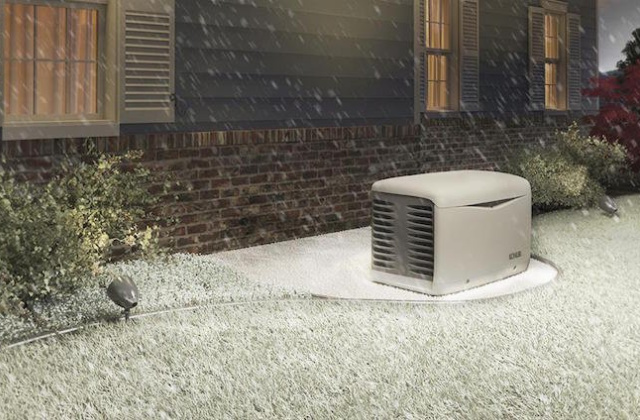How to Prepare Your Generator for Severe Weather
Posted by Kristopher Schwind

Making the decision to purchase a generator is an investment in peace of mind. To protect your investment, your generator needs to be maintained regularly, no matter the weather. That is the first and most important step you can take to make sure your generator is ready when the unexpected happens.
What are the additional steps you need to take so your generator works as planned during the severe weather events in your area? Here are tips to make sure you are safe and your generator performs at its peak when you need it.
Winter Weather
- Make sure the area around the intake and exhaust vents is clear of snow, ice, leaves, grass and debris. This step alone can help avoid overheating, generator damage and significant system failure.
- Conduct a maintenance check including fuel testing and load bank testing. This way you assure yourself that the fuel is in good order and the unit is operating as expected. Schedule a professional maintenance checkup as winter approaches
- Change your oil. It’s much easier to perform this important maintenance item when the weather is pleasant. Changing oil during a blizzard is no fun. If you need help, call us. One of our friendly customer support specialists will be happy to discuss the situation over the phone at no cost.
- Run your generator every week for about 10 minutes to lubricate the unit.
Flooding
- The most important consideration if flooding is a risk in your area is to install your generator on an elevated platform. Platforms can be constructed of poured or block concrete, metal or wood.
- The lights may go out, so make sure you have flashlights, lanterns or candles in an easily-accessible spot. You may need light to safely get to your generator.
- Make sure your generator is outside and far away from doors, windows and vents. Generators should not be used inside homes, garages, crawlspaces, sheds or similar areas due the potential buildup of deadly carbon monoxide.
- Take care to turn off the generator before refueling. If the generator has been operating, it may be hot. Avoid spilling fuel on heated components.
- Be aware of downed power lines that may be resting in or hidden by water. Electricity can travel through water, so downed lines present a significant risk. OSHA offers ways to be safe around downed power lines.
Hurricanes
- If your area is prone to regular hurricanes, make sure to purchase your generator ahead of time. When a hurricane is approaching or just afterward, generators may be in short supply.
- A hurricane can take power down for lengthy periods of time, so make sure you have 25-30 gallons of fresh fuel available. Keep a five-gallon can handy for easy refueling.
- Make sure you have the power cords you need to transfer power from your generator to the appliances you need to keep running. Think refrigerator, lights or sump pump. Make sure the cords match the wattage of your generator.
- If you’re running your generator for lengthy periods of time, make sure to perform oil changes regularly. Since roads may not be passable, or supplies may be gone, make sure to stock enough oil to keep your generator safely up and running.
If you have any questions or concerns about your generator, or if you’re ready to purchase a generator, contact National Standby Repair. Our expert technicians service most brands, and we offer a large number of generator types for sale. Our knowledgeable staff will be happy to come to you to talk about the best generator for your needs.
 24/7 EMERGENCY GENERATOR SERVICE
24/7 EMERGENCY GENERATOR SERVICE REQUEST A QUOTE
REQUEST A QUOTE
 (914) 734-1400
(914) 734-1400